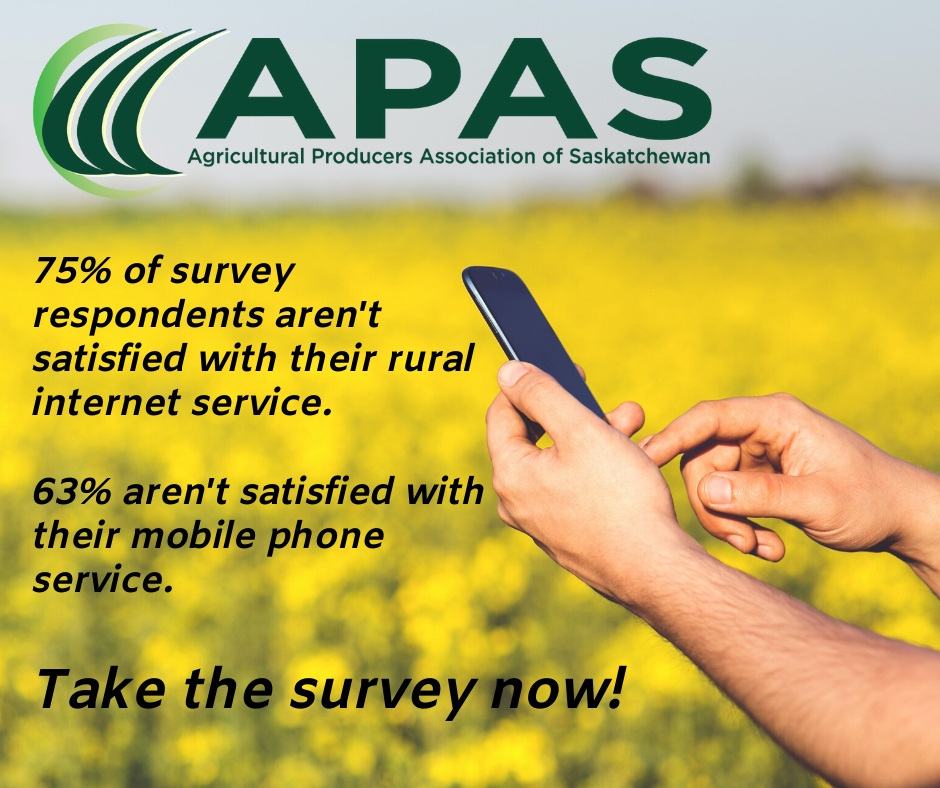Poor cell and internet service in rural communities is a well-known problem facing Saskatchewan residents, and positive change is long overdue.
APAS continues to tackle the issue of rural connectivity on behalf of our members, and are proud to announce the release of a new report called “Out of Range: Internet and Cell Service in Rural Saskatchewan.”
Released this week (read our press release here), the report analyzes data collected by APAS as part of our previous rural connectivity survey, which took place between May 2019 and January 2020. Over 500 rural residents from across the province took part in the survey, and the results clearly show that rural Saskatchewanians should be concerned with their poor access to cell and internet service: it is affecting the economy, education, and safety of rural residents.
As people across Canada have adapted to COVID-19 by working and learning from home, the need to address rural connectivity has become even more urgent. In our recent COVID-19 Farm Survey, we heard from you again about how poor cell and internet service is a major issue facing rural communities.
It’s very clear that rural connectivity is a huge problem. So what’s the way forward?
Our report makes a clear and simple recommendation to the Canadian Radio and Telecommunications Commission (CRTC): changing their criteria for defining “underserved areas” is a necessary first step towards improving connectivity in rural Saskatchewan.
We know what needs to happen, and now we need to back up our recommendation with the best, most current data available!
That’s where you come in. We are launching a new connectivity survey and we invite you to take a moment (3-4 minutes) to complete it now.
We’ll continue collecting responses over the summer, so please share the survey link with other rural residents, including farmers, ranchers, and those living in small towns, villages, and First Nations communities.
The CRTC and federal government need to hear your voices to know that changes are way past due. We can only fix this longstanding rural problem by working together!





